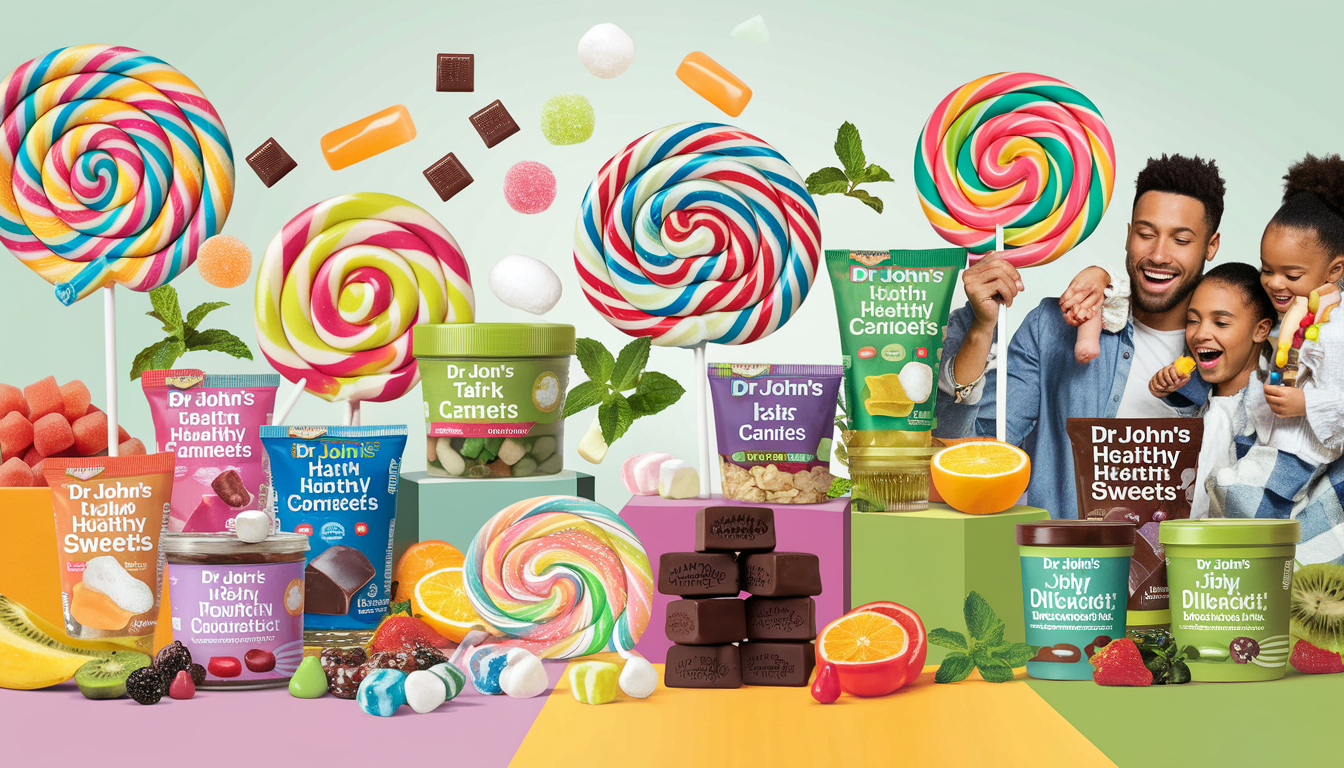
Article Detail
Unlock the probiotic benefits for gut health with Dr. John's Healthy Sweets. See how probiotics and prebiotics support digestion and boost your immune system while exploring natural probiotics for a healthier lifestyle.
Probiotics have become a popular topic in health and wellness circles, and for good reason. These beneficial bacteria play a crucial role in maintaining a healthy gut, which in turn affects overall well-being. In this article, we will explore the probiotic benefits for gut health and provide practical tips on how to incorporate them into your diet. We will also discuss the difference between probiotics and prebiotics, the additional health benefits of probiotics, and probiotic foods rich in these helpful microorganisms.
What Are Probiotics?
Probiotics are live bacteria and yeasts that are good for your health, especially your digestive system. Often referred to as 'good' or 'friendly' bacteria, they help keep your gut healthy by balancing the levels of bacteria in your intestines. This balance is essential for proper digestion, nutrient absorption, and immune function.
To learn more about how to get more probiotics into your diet, you can refer to this Harvard Health article.
How Probiotics and Prebiotics Improve Gut Health
Understanding the difference between probiotics and prebiotics is key to improving gut health. Both play vital roles, but they function as live bacteria and yeasts that are good for your digestive system. They help maintain a healthy balance of gut flora, which is essential for digestion and overall health.
- Probiotics: These are live bacteria and yeasts that are good for your digestive system. They help maintain a healthy balance of gut flora, which is essential for digestion and overall health.
- Prebiotics: These are non-digestible fibers that feed the good bacteria in your gut. They act as food for probiotics, helping them thrive and multiply.
When combined, probiotics and prebiotics work together to create a healthier gut environment. According to a study from the National Center for Biotechnology Information (NCBI), this combination can help improve digestion, boost the immune system, and even enhance mood and mental health. Including gut health supplements can further support your digestive wellness.
How to Incorporate Probiotics into Your Diet
Adding probiotics to your diet doesn't have to be complicated. Here are some practical tips to help you get started:
- Yogurt: Choose yogurt with live and active cultures.
- Fermented Foods: Include foods like sauerkraut, kimchi, and kefir in your meals.
- Supplements: Consider taking probiotic supplements if you have dietary restrictions.
- Probiotic Candies: Try Dr. John's Healthy Sweets' Immune Health and Probiotic Candies for a tasty and convenient option.
For more natural methods to improve digestion, check out this Healthline article.
Additional Benefits of Probiotics
While probiotics are well-known for their positive impact on gut health, their benefits extend beyond the digestive system. Here are some additional advantages of probiotics:
- Immune System Support: Probiotics can help strengthen the immune system by promoting the production of natural antibodies and boosting the activity of immune cells.
- Improved Mental Health: Emerging research suggests that probiotics may help alleviate symptoms of anxiety, depression, and stress by influencing the gut-brain axis.
- Heart Health: Certain probiotics can help lower blood pressure and cholesterol levels, contributing to overall heart health.
- Skin Health: Probiotics may help improve skin conditions like eczema and acne by reducing inflammation and promoting a healthy balance of bacteria on the skin.
For more detailed information on the scientific backing of these benefits, you can refer to this PMC article.
Foods Rich in Probiotics
Incorporating probiotics into your diet can be both delicious and easy. Here are some common foods that are high in probiotics:
- Yogurt: One of the most well-known sources of probiotics, yogurt is made from milk fermented by friendly bacteria, mainly lactic acid bacteria and bifidobacteria.
- Kefir: A fermented milk drink that contains a variety of probiotic strains.
- Sauerkraut: Fermented cabbage that is rich in probiotics and also high in fiber and vitamins.
- Kimchi: A traditional Korean dish made from fermented vegetables, usually cabbage and radishes, and seasoned with various spices.
- Miso: A Japanese seasoning made by fermenting soybeans with salt and koji, a type of fungus.
- Kombucha: A fermented tea drink that contains a mix of bacteria and yeast.
- Pickles: Cucumbers fermented in salty water can also be a good source of probiotics.
For more practical information on how to get more probiotics into your diet, you can refer to this Harvard Health article.
Conclusion and Call to Action
Probiotics offer numerous benefits for gut health and overall well-being. From improving digestion to boosting your immune system, these friendly bacteria are essential for a healthy lifestyle. Including probiotic-rich foods in your diet is a simple and effective way to enjoy these benefits.
At Dr. John's Healthy Sweets, we understand the importance of gut health. That's why we offer a range of probiotic candies designed to support your digestive system while satisfying your sweet tooth. Explore our Immune Health and Probiotic Candies and experience the joy of guilt-free indulgence.
Take the first step towards better gut health today with Dr. John's Healthy Sweets!


